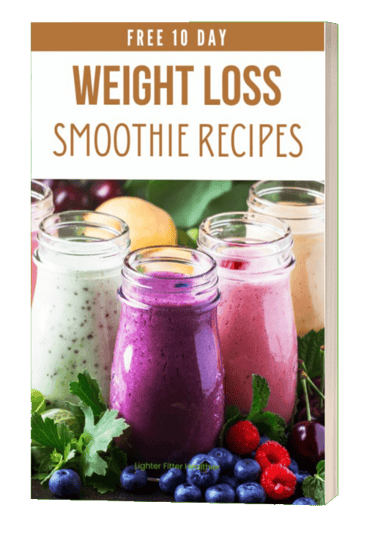Best Fruits Women Should Eat at Every Age for Health
This guide explores the perfect fruits to fuel your body and well-being throughout every stage of a woman's life.
Michele Sturgis
6/8/20246 min read


Fruits are nature's sweet gift, brimming with vitamins, minerals, and antioxidants that play a vital role in maintaining a healthy lifestyle. But did you know that the fruits you choose can be tailored to nourish you through the different chapters of womanhood? From the energy-demanding days of your 20s to the transformative years of menopause, each stage of life calls for a unique fruit ensemble to support your well-being.
Take This 1 Minute Survey and Find Out How to Lose Weight and Still Eat Your Favorite Foods
Fruits for Young Women (20s-30s)
The roaring 20s and the fabulous 30s – a time when the world is our oyster, and we're ready to conquer it all! But let's be real; juggling careers, social lives, and (for some) the prospect of starting a family can be a lot to handle. That's why it's crucial to fuel our bodies with the right nutrients during this stage.
Iron, Folate, and Calcium for Unstoppable Energy and Radiant Health
Iron is essential for carrying oxygen throughout our bodies, which means more energy to power through those long workdays (or late-night Netflix binges). Folate, on the other hand, plays a crucial role in cell growth and development, making it a must-have for anyone considering starting a family down the line. And let's not forget calcium – the bone-building superhero that keeps our skeletons strong and sturdy.
So, what are the best fruit sources for these powerhouse nutrients? Let's start with berries – whether it's juicy strawberries, plump blueberries, or tangy raspberries, these little gems are packed with iron and folate. Want to sneak in some extra greens? Try blending up a refreshing smoothie with spinach or kale ; you won't even taste them under the fruity flavors!
And let's not forget about those sweet, juicy oranges. Not only are they bursting with vitamin C (hello, immune system boost!), but they're also a great source of calcium to keep those bones in tip-top shape.
Cognitive Function and Stress Management: Fruity Allies for a Balanced Mind
Let's be real; our 20s and 30s can be a whirlwind of late nights, tight deadlines, and never-ending to-do lists. That's why it's essential to nourish our brains and find ways to manage stress effectively. Enter blueberries and bananas – two fruity superstars that can help us stay sharp and centered.
Blueberries are loaded with antioxidants that can help protect our brain cells from oxidative stress, which can lead to cognitive decline over time. Plus, they're a delicious way to satisfy those sweet cravings without reaching for the candy bar.
Bananas, on the other hand, are a fantastic source of potassium, which can help regulate blood pressure and reduce the physical symptoms of stress. They're also a great pre-workout snack, providing a steady stream of energy to power through your gym sessions or that weekly yoga class.
Fruits for Busy Women (30s-40s)
As you juggle career, family, and perhaps even a side hustle, your 30s and 40s demand fruits that work as hard as you do. During this busy stage, it's crucial to prioritize fruits that can give our immune systems a much-needed boost and help us maintain a healthy metabolism.
Immunity Boosters and Metabolism Supporters: Citrus and Kiwi to the Rescue!
Let's kick things off with the mighty citrus family – grapefruit, oranges, and all their tangy relatives. These vibrant fruits are loaded with vitamin C, a powerful antioxidant that can help strengthen our immune systems and keep those pesky colds and flu bugs at bay. Plus, they're a refreshing and hydrating snack to enjoy during those seemingly endless days at the office or running errands.
Speaking of boosting our metabolism, Kiwi, these little green wonders are packed with fiber and vitamin E, both of which can help support a healthy metabolism. We could all use a little extra help in that department, especially during those times when stress and busy schedules can take a toll on our bodies.
Blood Sugar Balancers: Apples and Pears for Steady Energy
As if managing our immune systems and metabolisms wasn't enough, us busy ladies also need to keep an eye on our blood sugar levels. That's where apples and pears come into play. These fiber-rich fruits can help regulate our blood sugar levels, preventing those dreaded energy crashes that always seem to hit at the worst possible times.
But here's the catch – to truly reap the benefits of these fruits, you'll want to leave the skin on. That's where all the good fiber is hiding, and trust me; you'll want all the help you can get to keep those blood sugar levels nice and steady throughout the day.
Personal Anecdote: I remember this one time when I was running from meeting to meeting, and I could feel my energy levels crashing hard. I ended up grabbing a pear from the office kitchen, and let me tell you, it was a total game-changer! The combination of natural sugars and fiber kept me going strong until I could finally sit down for a proper meal.
Fruits for Women in Perimenopause & Menopause (40s-50s+)
Ah, the wisdom years – the 40s, 50s, and beyond. As we navigate the often-choppy waters of perimenopause and menopause, our bodies go through some pretty significant changes. But fear not, ladies; we've got a fruity arsenal to help us tackle these transitions with grace and confidence.
Antioxidant and Bone-Building Warriors: Berries, Pomegranates, and Dried Fruits
Berries and pomegranates. These little gems are packed with compounds that can help combat oxidative stress, which can contribute to various age-related health issues. Blueberries, raspberries, strawberries; they're all heroes in their own right!
Dried fruits like apricots and prunes. Not only are they loaded with antioxidants, but they're also excellent sources of bone-building nutrients like calcium, magnesium, and vitamin K. to keep your bones strong and sturdy as you navigate this new chapter of life.
Menopausal Symptom Soothers
Hot flashes and night sweats – the not-so-glamorous side effects of menopause that we could all do without. While fruits alone can't solve all the challenges of menopause, some specific fruits can offer valuable support during this transition. Here's how:
Berry Boost: Dark-colored berries like blueberries, blackberries, and raspberries are packed with antioxidants, which can help combat free radicals and potentially reduce inflammation, a factor that might contribute to some menopausal symptoms.
Fiber Fantastic: Fruits like apples, pears, and prunes are high in fiber, which can help regulate your digestive system and potentially ease bloating, a common complaint during menopause.
Hydration Heroes: Watermelon, cantaloupe, and other high-water-content fruits can help you stay hydrated, which is crucial for overall health and may even alleviate hot flashes for some women.
Conclusion:
Incorporating the right fruits into your diet can be a game-changer at every stage of life. While this guide offers a starting point, remember that your body's needs are unique. Always consult a healthcare professional for personalized dietary advice. And now, why not grab a fruit and savor the journey of life, one bite at a time?
Download Your FREE Keto Recipes


15+ Delicious & Healthy Keto Recipes You Need To Try
It’s time to let go of your bad habits. Let's make your health a priority, and create positive changes to your health and happiness—for good.
FAQs:
What if I don't like fresh fruit?
Frozen fruits are a great alternative and can be used in smoothies, yogurt parfaits, or baking. Dried fruits offer a concentrated source of nutrients, but be mindful of portion sizes due to higher sugar content.
Can I juice fruits instead of eating them whole?
While juicing can provide some vitamins, it removes the fiber found in whole fruit, which is important for digestion and feeling full. Opt for smoothies that incorporate the whole fruit for a more balanced option.
Are there any fruits I should avoid?
It's more about moderation than avoidance. Fruits are generally healthy, but those high in natural sugars (like mangoes or grapes) should be enjoyed in balanced portions. Consult a doctor if you have any specific dietary restrictions.
How much fruit should I eat each day?
The recommended daily intake of fruit can vary depending on factors like age, activity level, and overall calorie needs. Generally, aim for 1.5-2 cups of fruit per day.
How can I make sure I'm getting enough variety in my fruit intake?
Try incorporating a rainbow of fruits into your diet. Each color represents different nutrients, so a colorful plate is a healthy plate!
Supercharge Your Health with these 7 Smoothie Secrets

Empowering women to be healthy, happy, and beautiful.
Affiliate Disclosure: Some of the links on this site are affiliate links, which means that we may receive a small commission if you make a purchase through them. This is at no extra cost to you. This helps support this website and allows us to continue to create content like this.
©2025 FemmeJourney. All rights reserved.



